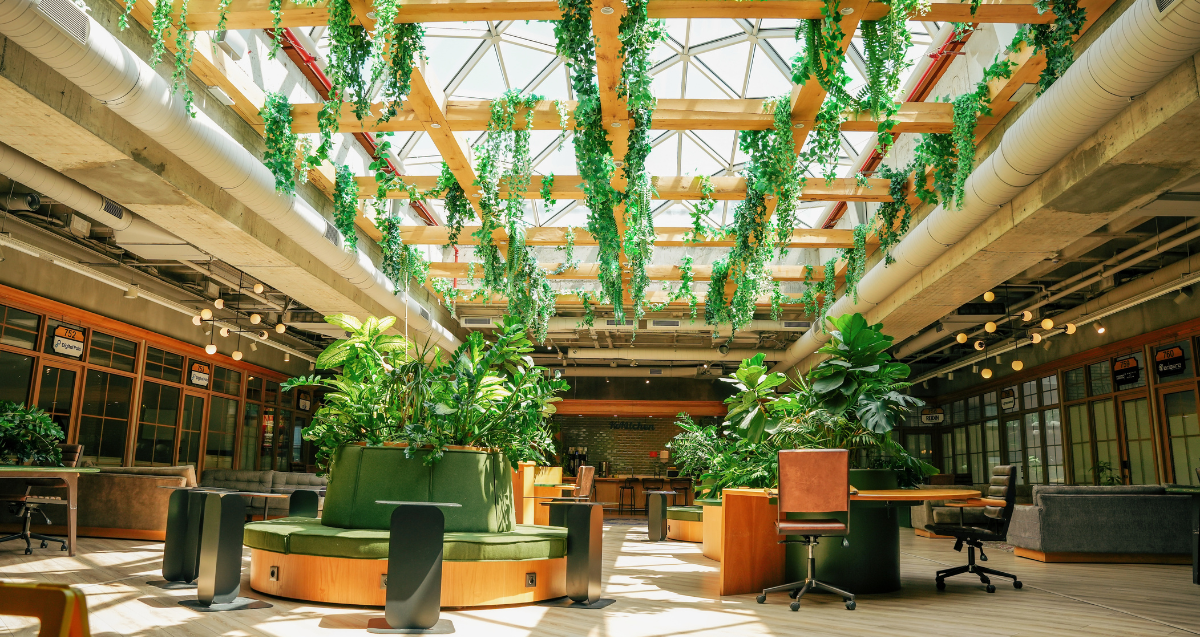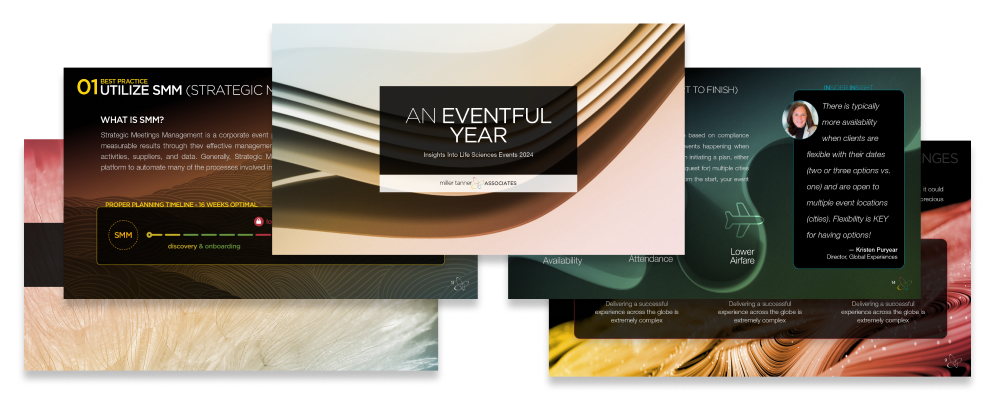
As an eco-conscious organization, you work hard to reduce your impact on the environment by taking measures to save energy and reduce waste. Yet, when planning an event that doesn’t fall into the scope of your typical operations, it’s easy to overlook the potential environmental impact. Luckily, it’s possible to arrange an amazing and successful event while minimizing negative environmental impacts. Evaluation and careful planning can help you create a sustainable event that matches your goals and aligns with your organization’s core values.
It’s crucial for businesses to prioritize sustainability in all aspects of their operations. One area that often goes overlooked is corporate events. These gatherings can have a significant environmental impact, but with some thoughtful planning and conscious decision-making, these events can be more sustainable. In this blog, we will explore five practical tips to help you organize eco-friendly corporate events in 2025.
1. Choose Sustainable Venues
Selecting the right venue plays a vital role in reducing the carbon footprint of your event. Look for venues that prioritize sustainability by implementing energy-efficient practices, utilizing renewable energy sources, and having recycling programs in place. Look for locations with green certification, such as LEED or Green Seal. These certifications indicate that the venue has met specific environmental performance and sustainability standards. In addition to green certifications, consider the venue’s energy efficiency. Additionally, consider hosting events at locations easily accessible by public transportation to encourage attendees to use greener commuting options. Some companies may even consider hosting regional meetings instead of one national meeting to reduce their carbon footprint.
2. Minimize Waste Generation
Reducing waste should be a top priority when organizing sustainable corporate events. Opt for digital invitations instead of paper ones and provide recycling bins throughout the venue for easy waste separation. Encourage caterers to use reusable or compostable servingware rather than single-use plastics or Styrofoam products. For example, instead of disposable plastic water bottles, provide refillable water stations strategically placed around the event space along with biodegradable cups made from plant-based materials.
3. Embrace Technology
Leveraging technology not only enhances the attendee experience but also reduces the environmental impact of your event. Utilize event management software or mobile apps that allow participants to access schedules, maps, and other relevant information digitally. Go paperless at your event by using an interactive event app to manage your agenda, communication, and travel itineraries.
4. Incorporate Sustainable Catering Options
Food choices at corporate events can significantly contribute to their overall sustainability profile. Opt for locally sourced ingredients whenever possible to reduce transportation emissions and support local farmers. Prioritize vegetarian or vegan menu options as they have a lower carbon footprint compared to meat-based dishes. One option might be to partner with catering companies specializing in sustainable practices such as sourcing organic produce from nearby farms or donating excess food leftovers to local charities.
5. Offset Carbon Emissions
Despite our best efforts, some carbon emissions are inevitable during large-scale events like conferences or trade shows due to travel requirements and energy consumption on-site. Consider partnering with organizations that specialize in carbon offset projects such as reforestation initiatives or renewable energy investments.
By implementing these five tips into your corporate event planning process, you can make significant strides toward creating more sustainable gatherings in 2025 and beyond.
The Importance of Sustainable Event Planning
Impact is typically top of mind in event planning. You want to create a memorable event that delights participants and yields the desired impact. Achieving those goals often means abundance at every turn, including food catering, lavish decorations, attention-grabbing visuals and presentations, staging, audio, and more. It’s easy to overlook the fact that such an event can consume an immense amount of energy and generate tons of waste (literally). Sustainable event planning requires consideration of the environmental impact of your event and making changes to mitigate that impact.
Hosting sustainable events helps reduce harm to the environment and shows your staff and customers that you’re committed to your values as an eco-friendly organization. Making the effort to reduce your environmental impact in every way sets an example that other companies can follow, further contributing to long-term sustainability.
Selecting Eco-Friendly Venues
Your event venue will play a significant role in its sustainability. Structures built to maximize environmental benefits may utilize solar energy and kinetic energy, along with the use of energy-efficient systems and equipment. Venue owners take further measures to improve sustainability with systems designed to reduce waste.
Consider these factors when choosing a venue.
- Proximity to public transportation
- Size of the building
- Sustainably sourced or eco-friendly supplies (including tableware, linens, and food packaging)
- Energy efficiency (including lighting, heating/cooling, and presentation equipment)
- Water conservation measures
- Recycling programs
Utilizing Digital Tools to Minimize Waste
Evolving technology empowers organizations to produce extraordinary events that inspire and delight participants. Modern technology can also play a significant role in improving sustainability. From virtual attendance to waste-free marketing, digital tools offer many ways to reduce an event’s environmental impact.
- Virtual and hybrid event platforms: Hosting virtual or hybrid events allows you to reduce the environmental impact of travel and resource consumption while engaging a larger audience and increasing accessibility.
- Smart lighting and energy systems: Systems that use sensors to automatically adjust lighting and temperature levels based on room occupancy or usage data keep rooms comfortable while reducing energy consumption.
- Event planning and management software: Event management software allows organizers and attendees to have event details in the palm of their hands whenever and wherever they need them. Organizers can paperlessly make changes, share information, and keep attendees informed of travel and lodging details from practically any device.
- Event sustainability tracking software: Software designed to help organizers meet their sustainability goals allows event organizers to track metrics like waste, energy consumption, and emission reductions. These metrics can be used to make improvements and report on their event’s sustainability.
Contact Us at Miller Tanner Associates to Help Plan Your Next Sustainable Event
At Miller Tanner Associates, we’re passionate about helping companies around the world create events that are impactful, engaging, and aligned with their goals. Our commitment to excellence means you can count on us to deliver thoughtful, sustainable solutions that elevate your events without compromising on quality. Reach out today to discover how we can help make your next event not only memorable but also meaningfully sustainable.

